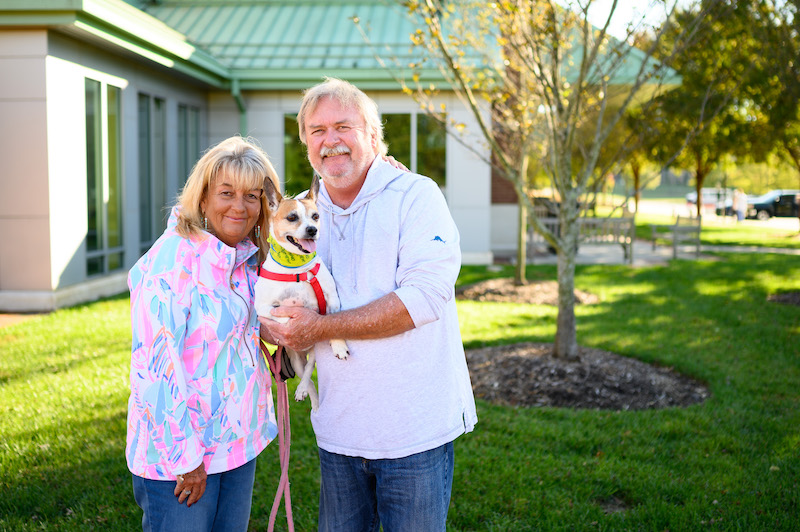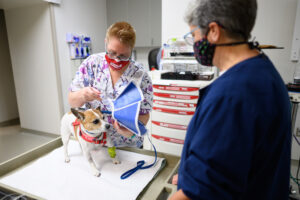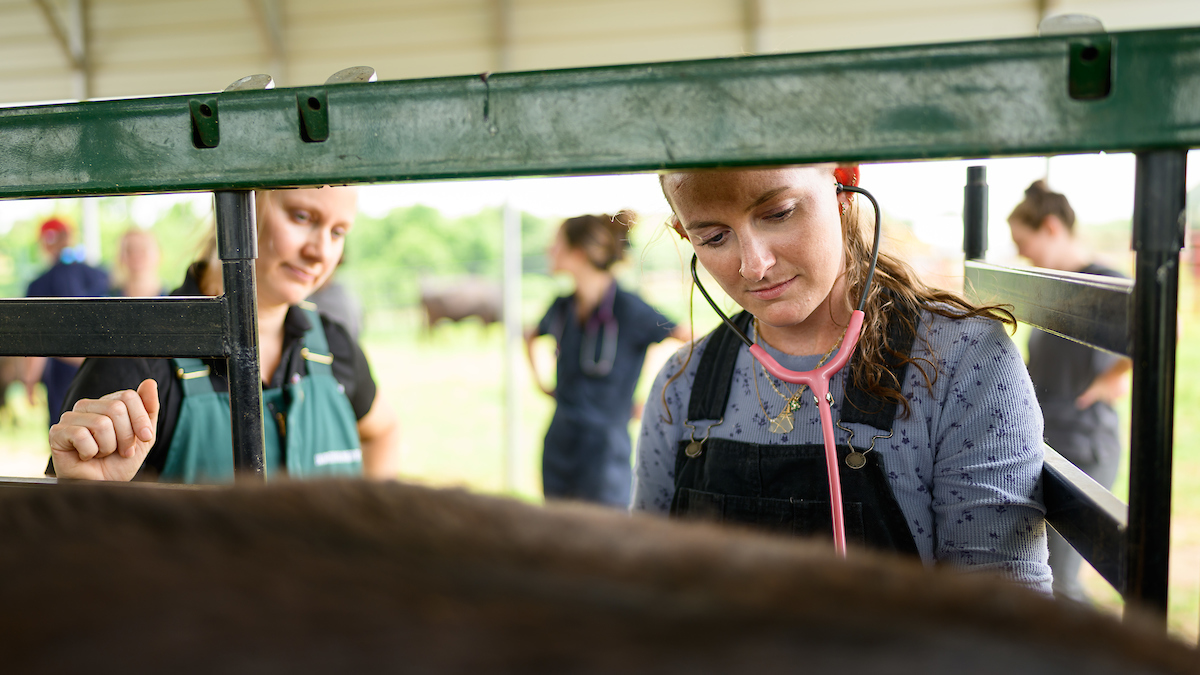Generosity and Cutting-Edge Care Means More Time for Molly

It’s not surprising that someone born at the coast would love boats, and Molly Leathers does.
Those who know Molly best say she’s energetic and outgoing. She also likes riding in golf carts, loves to eat and is a little freaked out by loud storms. Molly could be your next door neighbor.
Of course, your neighbor would have to be an 8-year-old brown-and-white terrier mix.
These days, Molly hangs out with the rest of the Leathers family at home in Fuquay-Varina, and things were going along pretty smoothly for Molly and her family until late September.
That’s when they noticed that a day after an episode of vomiting she was having trouble breathing and began sneezing, too. A trip to Molly’s veterinarian led to a biopsy, resulting in a startling diagnosis — she was suffering from an oral squamous cell carcinoma, a cancerous tumor originating in the gums.
“We got the news at 1 a.m. that it was cancer, which came as a total surprise. We shed a lot of tears over it,” says Donna Leathers, Molly’s owner.
Surgery was performed immediately to remove the tumor, but it soon reappeared. Molly was referred to the NC State Veterinary Hospital, where a team of oncology specialists and advanced equipment provide cutting-edge cancer care.

After an initial examination and evaluation in late October, clinicians at the hospital met with the Donna Leathers and outlined several treatment alternatives involving surgery, radiation or chemotherapy. The tumor had spread into Molly’s nose; surgery would come with a certain amount of disfiguring her face.
The Leathers were concerned about Molly’s reaction to having her appearance changed and opted for definitive radiation.
The goal of this type of radiation was to control Molly’s tumor for as long as possible. It would consist of 16-18 daily radiation treatments, Monday through Friday, each administered under general anesthesia.
While the treatment offered the prospect of maximum effectiveness while maintaining a good quality of life, such specialized treatment over a prolonged period carries a daunting price tag.
“We recently retired, and the budget is a little tight,” Leathers says. “But Dr. Nolan mentioned there was some help available, and it has really helped us out a lot.”
Clinician Michael Nolan, associate professor of radiation oncology and biology at the NC State College of Veterinary Medicine, is also head of the radiation oncology service at the hospital. He told the Leathers family about assistance that is available thanks to a generous grant from the Petco Foundation and Blue Buffalo Cancer Treatment Fund.
The treatment funds help pet owners defray the cost of treating companion animal cancers. These generous investments help pet parents focus on providing the best possible care for their pets rather than the cost of care.
“It’s a great program,” Leathers says. “We’ve told all our friends about it.”
Best of all, Molly is doing much better. She is breathing very well, Leathers says, and while she’s a bit tired, she’s eating well and her condition has improved.
“Everybody we’ve worked with has been great,” she says. “Everyone is super-sweet.”
Thanks to NC State, the Petco Foundation and Blue Buffalo Cancer Treatment Fund, Molly is already feeling more neighborly again.
~Steve Volstad/NC State Veterinary Medicine
- Categories:


